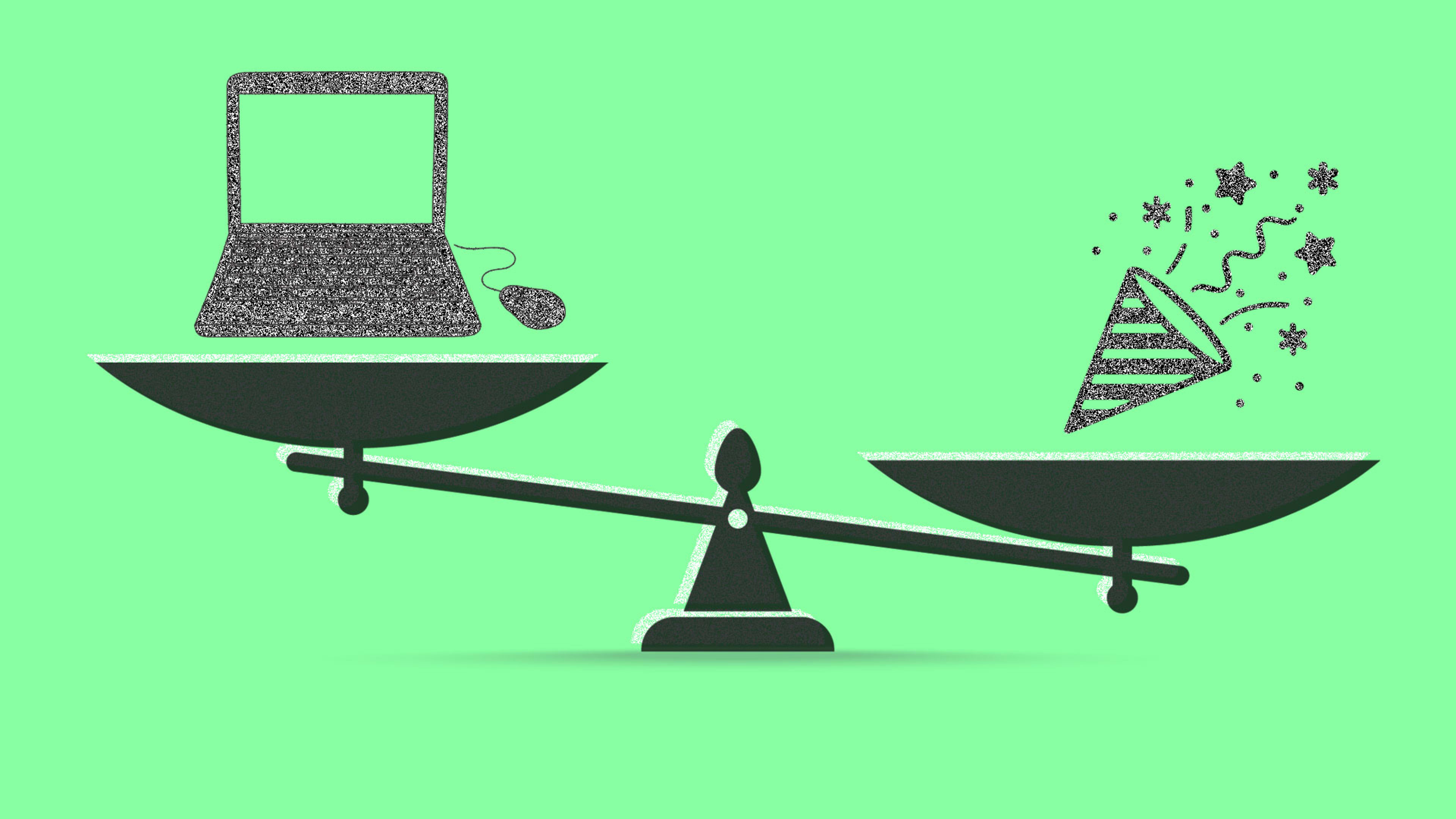Editor’s Note: Each week, Fast Company presents an advice column by Maynard Webb, former CEO of LiveOps and the former COO of eBay. Webb offers candid, practical, and sometimes surprising advice to entrepreneurs and founders. To submit a question, write to Webb at dearfounder@fastcompany.com.
Q: I’m trying to get my startup off the ground and it is taking ALL of my energy. Is it possible to achieve any kind of work-life balance?–Founder of an early-stage startup
Dear Founder,
I understand why you are struggling with this. Building a transformative company requires heroics from many people, and especially the founder. And in this noble pursuit, there is no such thing as balance. Taking an idea to greatness requires extreme–Herculean–efforts.
We all know that starting a company is not for the faint of heart. And we also know the unfortunate statistics: Most fail. That means in early stages of a startup, you have to be maniacally focused. I know people equate entrepreneurship with freedom, but that’s often not the reality. If you want to self-fund your company you can do whatever you want, but if you want to take outside money, investors expect total commitment, as that’s what it takes to break out of the morass. If you want to do something game changing, if you want to grow 1,000 times bigger, if you want to transform an industry or change the world, there will be difficult trade-offs.
And you will have to decide if it is worth it.
Sometimes it will be worth the cost and other times it will not. Many years ago, I was recruited to be the No. 2 person at a hot startup. The job was supposed to be in the Bay area, but it was then determined it would be in Seattle to accommodate the CEO who had been tapped from Microsoft. My wife had zero interest in leaving Silicon Valley for Seattle. She didn’t want to hold me back though, saying I could commute there and come home on the weekends. “It’s a startup,” I said. “There are no weekends.” (She understood this, and she still enjoys telling people about how when I was at Thomas-Conrad, when it was a startup, I called in sick one time–on a Sunday.) I politely declined the Seattle-based job and went to one that was in a different phase and allowed me to be with my family.
And that brings me to another point: A business can never succeed without the support and understanding of a founder’s loved ones. At the start of founding a company, founders should ensure that their partners are fully aware and bought into the challenge. As always, communication on this issue with your loved ones is key. That doesn’t mean that your partner will always understand or that there won’t be tension. There will not always be harmony, but you should always communicate what you are doing and why it’s important. There are certain times, an IPO road show for example, where balance will become even more out of whack, and it’s best to highlight what will happen in advance.
Choosing between work and family demands can ignite hard decisions, but there are right decisions to be made, and you can figure out this balancing act. At times, you need a framework to help you with the day-to-day conundrums. Brad Smith, Intuit’s chairman and former CEO, has articulated this dilemma very well. He describes two categories of moments in life: “rubber ball moments” and “crystal ball moments.” He said of the rubber ball moments, if you drop them, they’ll bounce and come back. With the crystal ball moments, if you let them drop, they shatter and they never come back. As he said, “Our key in life is to make sure we know which is which.”
Technology, and the constant connectivity it offers, has made many of the daily choices both easier and harder. In a world that’s connected 24/7, in which we check email after dinner (and often, sadly, during dinner), and we can work from home when the kids are off from school, there’s no longer such a thing as on hours and off hours. It has become so extreme and so taxing for some workers that there has been a barrage of backlash of late, and a bill was introduced in New York that would make it illegal for companies to require employees to check email after hours. France passed such a law in 2017, and Volkswagen shuts off its email server at night.
Regardless of what happens in that realm, it’s okay to set up some boundaries to protect some time for yourself. But as a founder you cannot avoid the extreme amount of work the job requires. I know a lot of founders, and they are as diverse in personality as possible, but the one thing they don’t have is great work-life balance.
Our work and personal lives often collide, and they will only continue to do so. The best way to make it all work is not to silo off the distinct parts, but to find a way to weave them together into a custom tapestry. If you do that, and if you are truly doing what you love, it trumps the desire for balance, and it achieves something better–a life well lived.
Correction: This article has been updated to reflect the correct title of Brad Smith.
Recognize your brand’s excellence by applying to this year’s Brands That Matter Awards before the final deadline, June 7.
Sign up for Brands That Matter notifications here.
